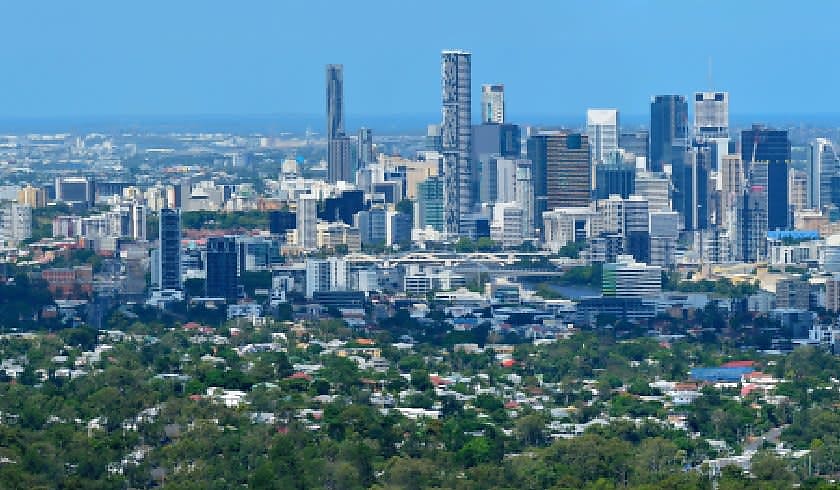Property development won’t be Brisbane’s only Olympic gold
As the Queensland capital prepares to host one of the world’s most coveted sporting events, one property expert believes Brisbane’s market growth will be a by-product of a wider tranche of Olympic-inspired development.

Nearly a decade separates the present and the kicking off of the 2032 Brisbane Olympics – starting guns haven’t been manufactured, gold medals aren’t polished yet, and many of the competing athletes are still in high school.
Yet, that hasn’t stopped the Olympic Games, the most prestigious sporting event to wash onto Australian shores since Sydney began the new millennium with its own iteration, fidgeting on the tips of everyone’s tongues.
For Melinda Jennison, newly appointed president of the Real Estate Buyers Agents Association of Australia (REBAA), the city’s property market is set to benefit from the games rolling into town, just not directly.
“Let’s just say, the 2032 Olympics in itself is not going to change property markets around our city,” she shared on a recent episode of the Smart Property Investment show.
“But, it’s the economic development, the infrastructure development, and the creation of jobs, the change that our city will undergo between now and then, that’s exciting for Brisbane and certainly Brisbane property,” she explained.
Recently, the Queensland government released the South-East Queensland Regional Plan, which aims to shape the growth of the state’s south-east corridor, where much of the Olympic buzz will be centred.
The plan encompasses 12 local government areas: Brisbane, Gold Coast, Ipswich, Lockyer Valley, Logan, Moreton Bay, Noose, Redland, Scenic Rim, Somerset, Sunshine Coast and Toowoomba, highlighting the vast expanse of the Olympics’ reach in the state.
Ms Jennison believes this is “going to shape the future way that Brisbane will be developed”.
As the city continues growing in the build-up to the 2032 Olympics and more “densely populated pockets” sprout across Brisbane, she stressed the importance of strong infrastructure, such as public transport, that citizens will “rely on”.
Already, there has been the development of a Cross River Rail, set for completion next year, which will run underneath Brisbane River and result in the redevelopment of several stations in Brisbane’s central business district. The project is expected to cost approximately $5 billion, slightly more than the $4.6 billion in tourism the state is set to receive as a result of the games.
This is according to a report titled Does the Olympics Contribute to Housing Supply?, which also revealed the games is set to deliver $8.1 billion in benefits to the Sunshine State and $3.5 billion in social improvements, including health and community benefits.
Analysing the impacts of previous Olympics on their respective hosts – including Tokyo, Rio De Janeiro, London, Beijing, Athens and Sydney – the report found housing supply in four of the six cities benefited from the games, with long-term housing benefits varying from city to city.
In the first year following the 2008 Olympics, the Chinese capital saw 9,000 apartments shoot up, followed by the games’ most recent host, Tokyo, which was boosted by just over 5,600 apartments in the first year following the games coming to town.
Greater indication of the direction Brisbane, and Queensland as a whole, is heading in came at the end of last year when the government announced it was raising its Housing Investment Fund (HIF) to $2 billion, with the aim of constructing 50,000 new social houses, townhouses, or units by the time the 2032 Olympics rolled around.
However, while development of existing or construction of necessary infrastructure is certainly geared towards delivering the best games, and best Brisbane, possible in 2032, this investment in the Queensland capital won’t cease once the final ceremony closes, Brisbane City Council councillor Krista Adams insisted at an HSBC fireside chat last March.
“We’re planning for 2042, not 2032,” she explained. “We’re planning for what happens afterwards – the legacy of the games and what Brisbane will look like after.”
Brisbane will be hoping to emulate the housing development success of another former host, London, who according to the Does the Olympics Contribute to Housing Supply? report introduced 682 new apartments (each year?) in the five to 10 years post-games, while nearby Sydney added 40 townhouses and 115 units in its equivalent period.
The future is exciting for the Queensland capital with Jeremy White, HSBC’s state manager for Queensland, predicting development in the city in the next decade to be “off the charts”.
Speaking at the bank’s fireside chat last March, Mr White proclaimed: “It’s going to be so incredible to be living in this city.”
With this exciting change in mind, Ms Jennison stressed the Brisbane we know and love now will be “very different” by the time the Olympics comes to town, with change being “so important [for] investors [to] understand”.
You can listen to the full chat with Ms Jennison here.
